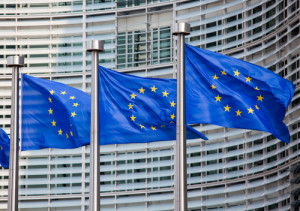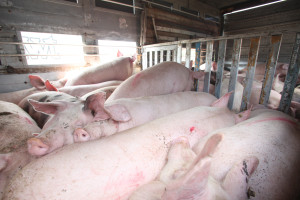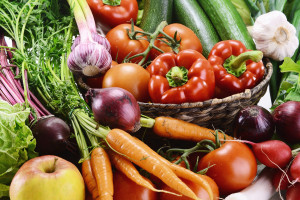Worldlog 25 de enero 2016
Holanda ocupa en este momento la presidencia de la Unión Europea. El bienestar animal debería ser la prioridad durante el turno holandés. La presidencia de la UE sería una ocasión perfecta para, por ejemplo, hacer algo sobre el transporte de ganado a larga distancia por Europa o sobre los perros callejeros rumanos, sacrificados en masa de forma cruel. El PvdD fue el único partido que pidió al presidente Mark Rutte atención para los derechos de los animales durante el debate de la semana pasada en el Parlamento Europeo.
El Gobierno holandés prometió hace algunos meses poner en la agenda política el bienestar animal durante la presidencia de la Unión Europea. Mi compañera Anja Hazekamp, europarlamentaria de nuestro partido, y yo estaremos muy pendientes para controlar que cumplen su palabra.

El 6 de abril se celebra en Holanda un referéndum sobre el tratado de asociación planificado entre la Unión Europea y Ucrania. El Partido por los Animales de Holanda está en contra de dicho tratado, en torno al cual hay gran controversia en este momento. Por eso me parece una gran idea pedirle su opinión a los ciudadanos. Sin embargo, en la práctica, tanto Ucrania como la UE hace tiempo que ejecutan el tratado, a pesar de que todavía no está ratificado. Con ello se vuelven a despreciar como si tal cosa los valores de una democracia. ¿Qué pasa si luego el resultado del referéndum holandés es “no”? ¿Cómo podríamos volver atrás en ese caso? Sobre esta cuestión he planteado preguntas parlamentarias al presidente. Continuará.

Los estudios demuestran que los cuellos de piel de los abrigos infantiles contienen altas concentraciones de formaldehído y etoxilatos, sustancias muy tóxicas. Los niveles de concentración constatados en los abrigos analizados superaban en algunos casos treinta veces la cantidad autorizada por la directiva textil. En concentraciones tan altas, estas sustancias pueden ser cancerígenas, provocar irritaciones y perjudicar la fertilidad. La piel animal no es solo un producto cruel e innecesario, sino que además constituye un riesgo para el consumidor, especialmente los niños. Por eso, le he pedido a la secretaria de estado que retire estos abrigos del mercado y advierta a los consumidores sobre los riesgos para la salud. Desde hace poco, las granjas para el cultivo de pieles están prohibidas en Holanda. No nos quedemos ahí, y prohibamos también la venta de productos de piel animal.
Pero también tengo buenas noticias para compartir con vosotros. Hong Kong ha anunciado su intención de prohibir el comercio de marfil y actuar con más dureza contra el comercio ilegal. Una noticia fantástica para la conservación de los elefantes y una señal muy clara para el resto del mundo.

El año nuevo ya empezó hace más de dos semanas, así que es un poco tarde para hablar de buenos propósitos. Pero a pesar de todo quiero compartir el artículo “5 formas de comer de forma respetuosa con el clima en 2016”. Porque consumir menos carne, más verdura y más productos locales y ecológicos no solo es bueno para tu salud, sino también para tu entorno. Si eso no es matar dos pájaros de un tiro…
¡Hasta la próxima!
Saludos,
Marianne
The Netherlands is currently President of the European Union. During this presidency, animal welfare should have first priority. After all, this EU Presidency is the perfect opportunity to do something about the long-distance animal transport within Europe or the Rumanian stray dogs being brutally slaughtered on a large scale. Last week during a European Parliament debate with Prime Minister Mark Rutte, the Party for the Animals was the only party to demand attention for the fate of animals.
A few months ago, the Dutch government made a promise to promote the idea of animal welfare in Europe during its presidency. Naturally, my colleague and the Party for the Animals’ MEP Anja Hazekamp and I will closely monitor whether this promise is kept!

On 6 April, a referendum will be held in the Netherlands on the planned association agreement between the European Union and Ukraine. The Party for the Animals is against the agreement.
At present, there is a lot of controversy around this agreement, which is why I believe it would be a good idea to ask citizens for their opinion. However, it appears that both Ukraine and the European Union have long started implementing the association agreement, despite the fact that it has not even been ratified yet! This way, the values of democracy are simply brushed aside once again. What if the outcome of the Dutch referendum will be ‘Against’? Is there still a way back? I have put forward parliamentary questions on this subject to our Prime Minister. To be continued.

Research has shown that the fur collars on children’s coats contain high concentrations of the highly toxic chemicals formaldehyde and ethoxylate. In some cases, the levels of formaldehyde and ethoxylate measured on the examined collars were up to 30 times higher than is permitted by the Textile Regulations. Such high concentrations are known to be extremely carcinogenic, to cause irritation and impair fertility. So fur is not only a very cruel and unnecessary fashion product, it is also a danger to the consumer, particularly to children. I have asked the State Secretary to take these coats off the market and warn consumers of their health risks. Fur farms have recently been prohibited in the Netherlands. Let’s stay the course by now dealing with the sale of fur.
Then there is some good news that I would like to share with you. Hong Kong has announced plans to ban the trade in ivory and impose heavier penalties on illegal trading. This is great news for the conservation of the elephant and it sends a strong message to the world.

It has been several weeks since the turn of the year, so it is a bit late for New Year’s resolutions. Nevertheless I would like to share with you this article entitled ‘5 ways to be a climate-friendly eater in 2016’. After all, eating less meat, more vegetables and more local and organic products not only benefits your health, but also your living environment. If that is not a win-win situation, I don’t know what is!
Until next time!
Kind regards, Marianne